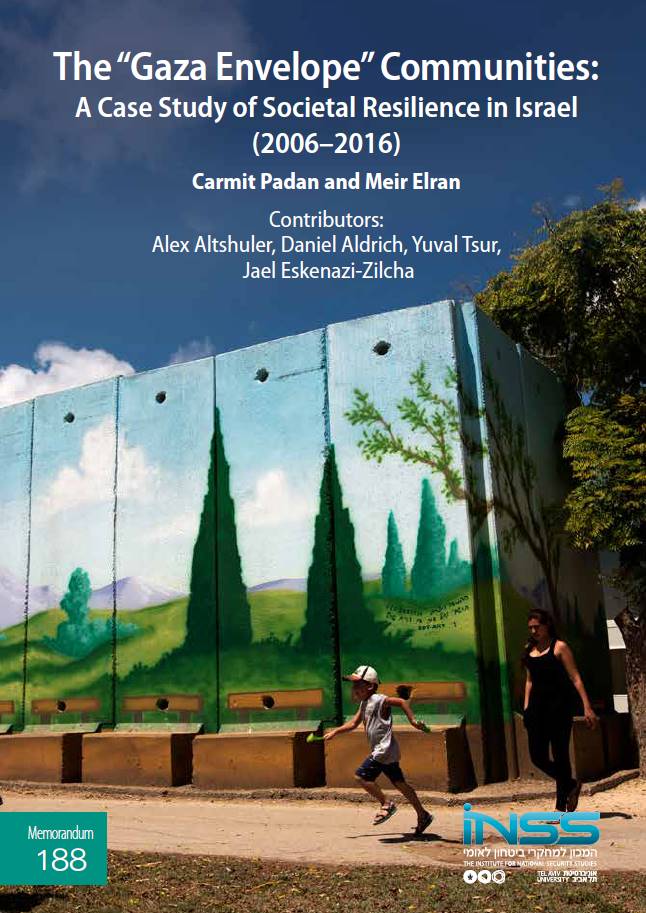Publications
The Institute for National Security Studies, February 2019

The goal of the research is to examine the phenomenon of societal resilience in the Israeli settlements in the western Negev, near the border with Gaza. All these settlements are exposed to similar security challenges; the period under review saw three rounds of intense fighting between 2008 and 2014 and a “routine of terror incidents” in the intervals between them. Ten years is a long enough time to develop the perspective required to gauge public efficacy and the organizational capacity of the communities during and following emergency situations. It is also long enough to allow the local residents to evaluate the physical and psychological resources available to them that are needed for coping with long-term instability and stress. Based on our rigorous investigation, the research also offers analytical tools for assessing the extent to which a community can return to normative functioning in its core missions following a major disruption and forecasting how long that process might take.
Contributors: Alex Altshuler, Daniel Aldrich, Yuval Tsur, Jael Eskenazi-Zilcha
This memorandum presents a case study on societal resilience in Israel by exploring the experiences of six communities in the security-challenged Gaza Envelope: one city, four kibbutzim and one moshav. On the basis of this comprehensive analysis, important strategic recommendations can be proposed, including :
1. Residents’ ability to determine the course of their own lives in emergency situations significantly affects their capacity to cope with the consequences of severe disruptions and to rapidly return to routine. A public self-sense of control during emergencies is found to enhance societal resilience at individual and communal levels.
2. The advancement of communal social capital and organizational resources during periods of relative calm will result in the community’s increased societal resilience in periods of tension. Close public cooperation and social cohesion testify to empowered social networks, which constitute important support constructs during emergencies.
3. Evacuating communities in time of peril should be considered as a legitimate option. It does not impede societal resilience and should be prepared in advance with the vision of a rapid return home to normal and enhanced communal functionality. This pattern of conduct represents a high level of resilience.
Though the study centers on specific communities, its findings can be applied in a much broader context of natural and manmade emergencies and localities.
This research was awarded with the "Inbar Fund – facing terrorism" prize.
==================================================
Contents
Preface
Introduction
Chapter 1: Conceptual and Policy-related Analysis of “Resilience”
Chapter 2: Functionality Indexes for Gauging Societal Resilience
Chapter 3: The Contribution of the Community Emergency and Resilience Teams to Societal Resistance
Chapter 4: The Resilience Centers in the Gaza Envelope
Chapter 5: The Contribution of the State to the Resilience of the Communities
Chapter 6: Recommendations to Promote Societal Resilience in Israel
Conclusions
Notes
Authors and Contributors


